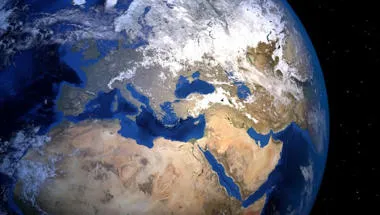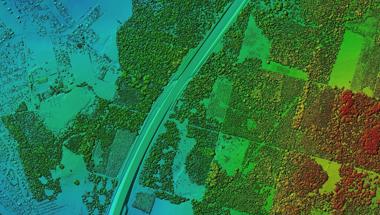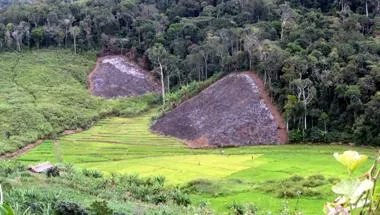
Professor James Millington
Professor of Environmental Geography
Research interests
- Geography
Biography
James Millington is an environmental geographer and landscape ecologist who studies landscape and environmental change, primarily focusing on land management and fire. He is a data scientist and computational modeller with a focus on human-environment systems and expertise in developing and applying modelling tools to investigate spatial, ecological and socio-economic processes and their interactions. James has more than two decades of teaching experience in the UK and US across all levels of higher education, including international field classes.
James is a Fellow of the Royal Geographical Society and the Higher Education Academy, a long-standing member of the International Association of Landscape Ecology (including as a committee member of the UK chapter), and a leading member of the Leverhulme Centre for Wildfires, Environment and Society. He is currently Associate Editor for Landscape Ecology and Discover Conservation journals and a regular reviewer for the Journal of Open Source Software.
Previously, James held a Leverhulme Early Career Fellowship and spent several years as Visiting Postdoctoral Associate in the Center for Systems Integration and Sustainability at Michigan State University. He received his PhD in Geography, MSc in Environmental Monitoring, Modelling and Management (with Distinction), and BSc (Hons) in Geography (First class), all from King's.
Research
- Landscape change: farming, forestry and fire
- Wildfire-Environment-Society interactions
- Agent-based modelling of geographical systems
- Spatial modelling of ecological succession-disturbance dynamics
James’ research investigates how people manage and interact with the physical environment, addressing challenges in our ongoing biodiversity and climate crises. His work focuses on landscape fire, land use and sustainability, and computational simulation of human-environment systems, integrating knowledge and insights from multiple sub-disciplines.
James’s research often uses and develops statistical and computational models with large spatial datasets but recognises that understanding human behaviour and enabling possible solutions cannot rely solely on quantitative outputs.
Find out more about James' research, including latest blog posts, code, presentations and posters at: https://landscapemodelling.net
Teaching
Undergraduate
James leads the Spatial Data Science Pathway and teaches on the following modules:
- 5SSG2046 Field Research in Physical Geography
- 5SSG2059 Foundations of Spatial Data Science
- 5SSG2060 Principles of Spatial Data Science
- 6SSG3077 Applications of Spatial Data Science
PhD supervision
James welcomes inquiries from excellent candidates wishing to pursue research that investigates:
- Ecological processes and human-environment interactions in forest and agricultural landscapes;
- Innovative uses of agent-based modelling to understand physical and/or social geographical systems.
Further details
Research

Physical Geography and Environmental Science research group
Enhancing understanding of processes, drivers and impacts in water, land, atmosphere and ecosystems to address environmental and societal challenges.

Earth Observation and Environmental Sensing Hub
The Earth Observation and Environmental Sensing (EOES) Hub is an interdisciplinary research group at the Department of Geography, King’s College London.

Centre for Non-Equilibrium Science (CNES)
CNES acts as an international hub for cross-disciplinary research in non-equilibrium science.

Urban Data Science
Supporting interdisciplinary research and innovation in and for London

Leverhulme Centre for Wildfires, Environment and Society
Transforming the scientific and practical understanding of wildfire through interdisciplinary research

Geocomputation and Data Science Research Hub
The Geocomputation and Data Science Research Hub provides expertise in solving contemporary global problems using data.

Political Ecology, Biodiversity & Ecosystem Services
The Political Ecology, Biodiversity & Ecosystem Services (PEBES) group provides a collaborative focus for work on the social (re)production of nature, environmental conservation and resource management.
News
World can't rely on tree planting to limit climate change, says report
Little consideration has been given by the IPCC to the feasibility of schemes that remove carbon dioxide from the atmosphere - despite many countries banking...

Brazilian conservation policy less effective on private lands
A policy designed to conserve forests has been less effective on privately-owned land in the Amazon due to an exemption for small property owners, leading to...

Events

Join our Geography online Information Session - 12 November 2025
Information session for Geography BA and Geography & Environmental Science BSc
Please note: this event has passed.
Features
Supporting students and staff in the world of big data
New modules on Spatial Data Science are making big data accessible to students

Spotlight
Putting survivors at the centre of disaster response
When disasters hit, International NGOs go to help reconstruct in the aftermath. However this usually creates a long term dependence on humanitarian aid....

Research

Physical Geography and Environmental Science research group
Enhancing understanding of processes, drivers and impacts in water, land, atmosphere and ecosystems to address environmental and societal challenges.

Earth Observation and Environmental Sensing Hub
The Earth Observation and Environmental Sensing (EOES) Hub is an interdisciplinary research group at the Department of Geography, King’s College London.

Centre for Non-Equilibrium Science (CNES)
CNES acts as an international hub for cross-disciplinary research in non-equilibrium science.

Urban Data Science
Supporting interdisciplinary research and innovation in and for London

Leverhulme Centre for Wildfires, Environment and Society
Transforming the scientific and practical understanding of wildfire through interdisciplinary research

Geocomputation and Data Science Research Hub
The Geocomputation and Data Science Research Hub provides expertise in solving contemporary global problems using data.

Political Ecology, Biodiversity & Ecosystem Services
The Political Ecology, Biodiversity & Ecosystem Services (PEBES) group provides a collaborative focus for work on the social (re)production of nature, environmental conservation and resource management.
News
World can't rely on tree planting to limit climate change, says report
Little consideration has been given by the IPCC to the feasibility of schemes that remove carbon dioxide from the atmosphere - despite many countries banking...

Brazilian conservation policy less effective on private lands
A policy designed to conserve forests has been less effective on privately-owned land in the Amazon due to an exemption for small property owners, leading to...

Events

Join our Geography online Information Session - 12 November 2025
Information session for Geography BA and Geography & Environmental Science BSc
Please note: this event has passed.
Features
Supporting students and staff in the world of big data
New modules on Spatial Data Science are making big data accessible to students

Spotlight
Putting survivors at the centre of disaster response
When disasters hit, International NGOs go to help reconstruct in the aftermath. However this usually creates a long term dependence on humanitarian aid....

